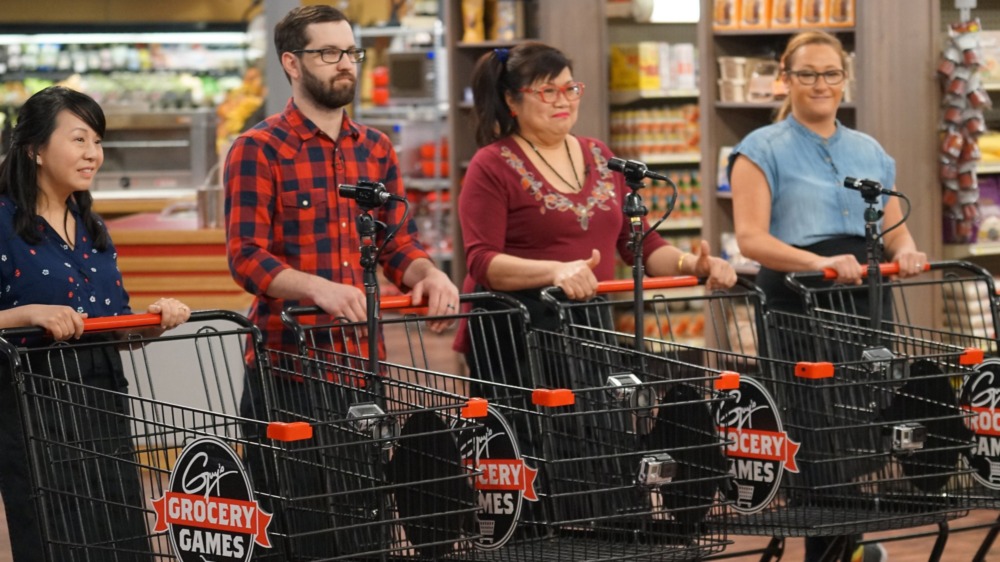The Surprising Connection Between Guy's Grocery Games And Supermarket Sweep
One of the real successes of Guy's Grocery Games is Flavortown Market, the supermarket-designed set through which contestants hurtle to grab their ingredients. What makes it notable is that unlike the older show Supermarket Sweep, Flavortown Market manages to function as a close replica to a regular store. "Unlike Guy's Grocery Games, [Supermarket Sweep] wasn't a real working grocery store," Scott Storey, the set designer for Guy's Grocery Games and Supermarket Sweep, recalled in an interview with Reality Blurred. "But it was stocked. Buying fake food is really expensive... So the production company would just buy real meat. It would sit there, unrefrigerated, for a week, and then after taping they would just throw it all away." Even worse, the real meat would rot on camera.
So when Guy's Grocery Games moved in the second season to its own warehouse, Storey built upon the memories of Supermarket Sweep to deliver a grocery store set in four weeks.
Flavortown Market wastes less food than Supermarket Sweep
As Storey tells it, the production company would buy real food for Supermarket Sweep, then let it spoil on its shelves. Flavortown Market, in contrast, takes treating its stock very seriously for a pseudo-supermarket. On their website, the Food Network details how each week, three hours are spent restocking the "store's" 241 produce items, 67 meat and poultry products, and 442 pounds of seafood. Here the two shows are somewhat similar, albeit Guy's Grocery Games does keep their food is fresh by storing it in a manner closer to that of a supermarket.
Triple-Gs' big departure from Supermarket Sweep is that at the end of the week, the production team takes foods that haven't expired but will relatively soon to local food banks. And while both shows probably spend a big portion of their budget on ensuring that the contestants will have what they need, Guy's Grocery Games ensures that what they spend doesn't all go to waste. If only doing this wasn't prohibitive to the business model of a real supermarket, which needs to sell the goods to make any money.

